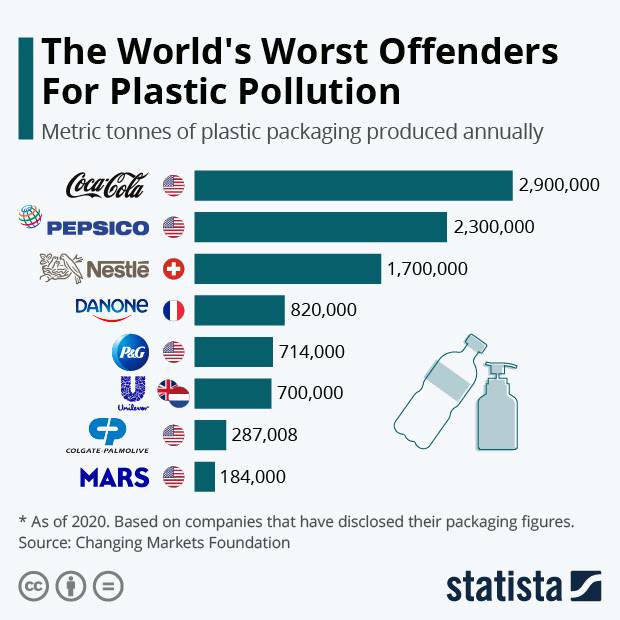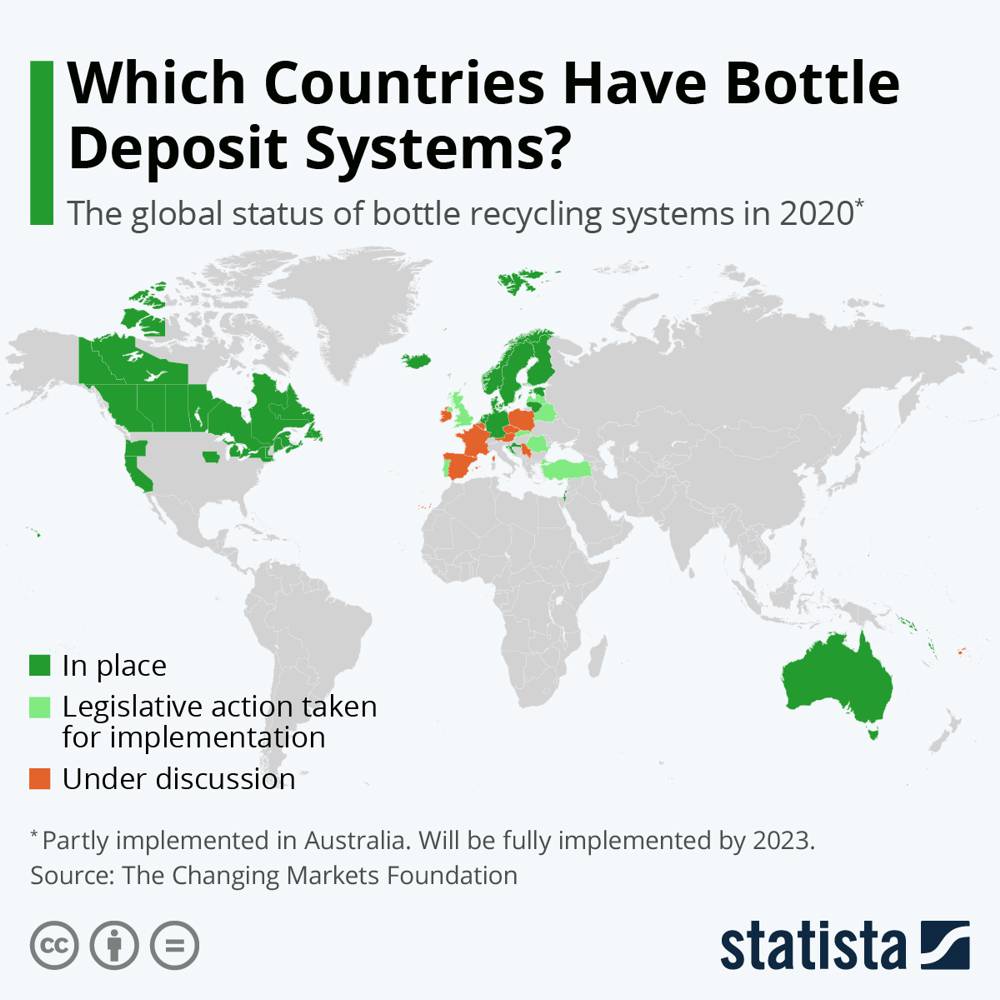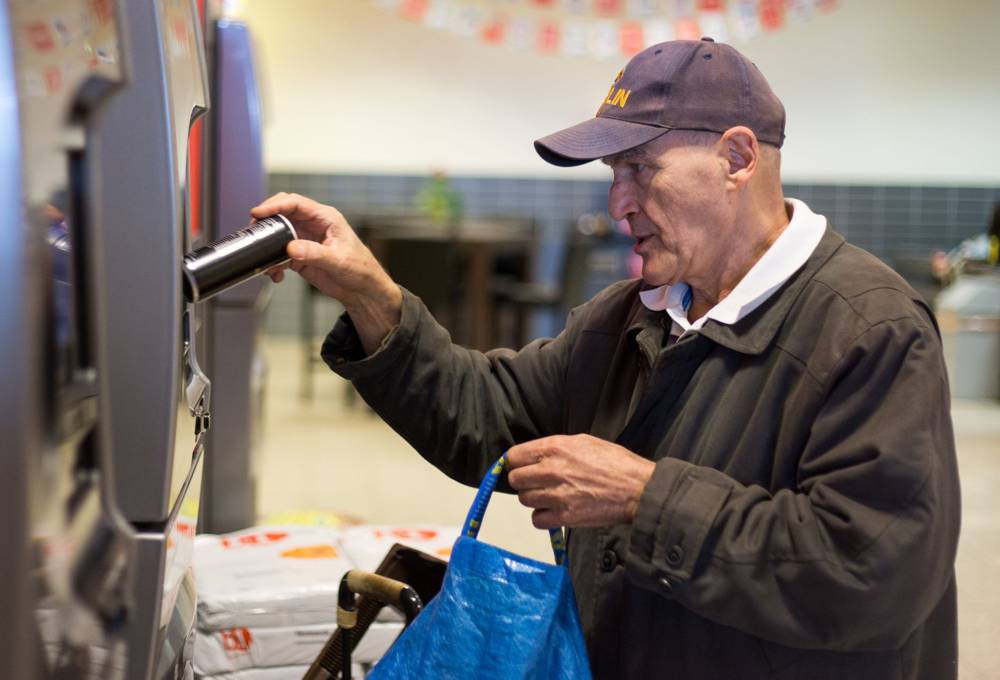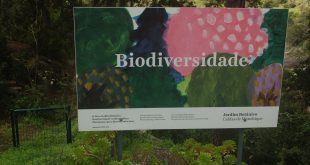Saturday, 26th September 2020
Germany has been using a highly successful bottle deposit system since 2003 to help cut down on plastic waste and increase recycling rates. A line of people in front of a deposit machine in a supermarket is perfectly normal with customers inserting their glass bottles, plastic bottles or beer crates before a receipt is printed, allowing them to recoup their money at the checkout. Currently, every glass bottle carries an eight cent charge while plastic ones are 25 cents. While the scheme has had the side effect of pushing disadvantaged members of society to root through rubbish bins in an attempt to find bottles to gain a deposit, it has proven successful and many countries are seeking to emulate it.
As of 2020, approximately 40 countries around the globe have introduced a bottle deposit system including Iceland, Ecuador, the Netherlands, Croatia and all of Scandinavia. In the United States, it has been introduced in 10 states – California, Connecticut, Hawaii, Iowa, Maine, Massachusetts, Michigan, New York, Oregon and Vermont (as well as Guam). It is also up and running across much of Canada. That’s according to a report from the Changing Markets Foundation which also states that eight countries have introduced legislation to bring in bottle deposit systems in the near future. The research also states that nine countries are currently conducting discussions exploring whether such a scheme would be feasible within their borders.
On the opposite.
The Changing Markets Foundation has released a new report naming and shaming the world’s worst plastic waste offenders. Entitled “Talking Trash: The Corporate Playbook of False Solutions”, the report states that the companies involved are actively taking steps to obstruct and undermine legislative solutions aimed at tackling an unprecedented global plastic waste crisis. In particular, it is highly critical of voluntary commitments from the world’s largest plastic producers which are being used as a tactic to derail and delay solutions while governments and consumers alike are being distracted by empty promises and false solutions.
 Out of the top-eight plastic producers on the planet, five are American. The report focused on companies who actually took the step of announcing the amount of plastic they produce. Coca-Cola was named as the company with the largest plastic footprint on earth with 2.9 million metric tonnes of plastic packaging produced annually while its biggest competitor, Pepsico, comes second with 2.3 million metric tonnes. Switzerland’s Nestle is in third place with 1.7 million metric tonnes.
Out of the top-eight plastic producers on the planet, five are American. The report focused on companies who actually took the step of announcing the amount of plastic they produce. Coca-Cola was named as the company with the largest plastic footprint on earth with 2.9 million metric tonnes of plastic packaging produced annually while its biggest competitor, Pepsico, comes second with 2.3 million metric tonnes. Switzerland’s Nestle is in third place with 1.7 million metric tonnes.
The report goes on to outline how the industry in the United States has successfully managed to shift the blame for plastic waste on to consumers and the authorities while higher rates of recycling are being cited as an excuse to produce even more plastic. In Europe, the industry has been trying to weaken and delay the EU Plastics Strategy and the EU SUP Directive. It also explored the problem in Asia where China has made major policy moves which have been undermined by low corporate action. In Japan, the public remains unaware of how the country’s plastic waste is exported or incinerated. South America, and Uruguay in particular, was criticized for brazen industry lobbying while in Africa, Kenya is being suffocated by plastic waste from companies seeking to grow their presence on the continent.
Will there be a solution?
 In this context, it is interesting to see that in Portugal 92% of the water is still being bottled in plastic. Why water, fruit-juices and milk are not exclusively bottled in glass, natural and reusable, and accompanied with a deposit system? If we want to solve our plastic problem, if we want to solve our environmental and climate problems, we need rewards, we need incentives. We will give every consumer a reward for every bottle, every can, every yoghurt container, for every recyclable raw material that the consumer brings back to the supermarket, and if we tax the production of plastic (PET, etc.) at source we win twice. Each plastic package must be taxed directly during its production. This would be a first step to become part of the solution and not remain part of the problem.
In this context, it is interesting to see that in Portugal 92% of the water is still being bottled in plastic. Why water, fruit-juices and milk are not exclusively bottled in glass, natural and reusable, and accompanied with a deposit system? If we want to solve our plastic problem, if we want to solve our environmental and climate problems, we need rewards, we need incentives. We will give every consumer a reward for every bottle, every can, every yoghurt container, for every recyclable raw material that the consumer brings back to the supermarket, and if we tax the production of plastic (PET, etc.) at source we win twice. Each plastic package must be taxed directly during its production. This would be a first step to become part of the solution and not remain part of the problem.
 Eco123 Revista da Economia e Ecologia
Eco123 Revista da Economia e Ecologia



